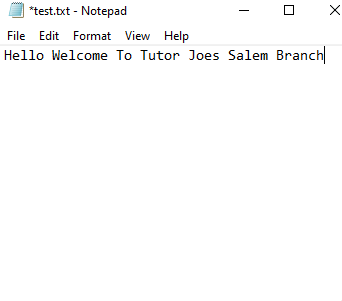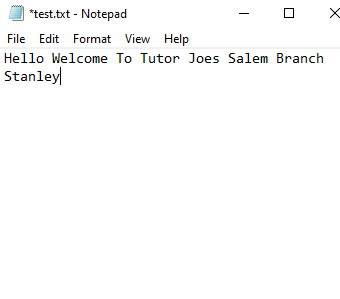Write File in C
In C, you can use the standard library function fopen() to open a file, and then use the function fwrite() or fprintf() to write to the file.
Here is an example of how to write to a file called "sample.txt" using the fprintf() function:
This program demonstrates how to write to a file in C using the fopen() and fprintf() functions.
- The program starts by including the stdio.h header file, which contains the declarations of the functions used in the program.
- In the main function, the program declares a file pointer "fp". The fopen() function is used to open the file "sample.txt" in append mode and assigns the returned pointer to the file pointer "fp".
- The append mode is used to add new data to the end of the file without truncating it, unlike the write mode that truncates the file to 0 bytes and overwrites it with the new data.
- The fprintf() function is used to write the given string "Stanley" to the file. The fprintf() function takes two arguments: a pointer to the file and a format string.
- Once all the data is written to the file, the program closes the file using the fclose() function and returns 0 to indicate that the program has executed successfully.
- It's worth noting that if the file does not exist, the fopen function will create it.
Source Code
//Write a File #include<stdio.h> int main() { FILE *fp; //fp=fopen("sample.txt","w"); fp=fopen("sample.txt","a"); fprintf(fp,"Stanley\n"); fclose(fp); return 0; }To download raw file Click Here
Output
Before Write File
After Write File

List of Programs
Sample Programs
Switch Case in C
Conditional Operators in C
Goto Statement in C
While Loop Example Programs
Looping Statements in C
For Loop Example Programs
Array Examples in C
One Dimensional Array
Two Dimensional Array in C
String Example Programs in C
Functions Example Programs in C
Learn All in Tamil © Designed & Developed By Tutor Joes | Privacy Policy | Terms & Conditions